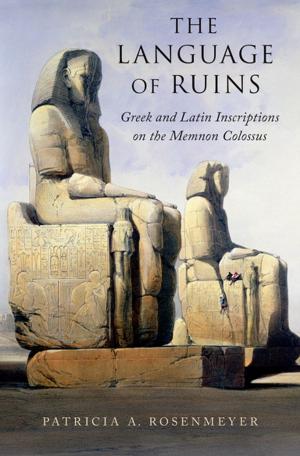Engagement and Metaphysical Dissatisfaction
Modality and Value
Nonfiction, Religion & Spirituality, Philosophy, Metaphysics, Ethics & Moral Philosophy| Author: | Barry Stroud | ISBN: | 9780190454173 |
| Publisher: | Oxford University Press | Publication: | January 14, 2011 |
| Imprint: | Oxford University Press | Language: | English |
| Author: | Barry Stroud |
| ISBN: | 9780190454173 |
| Publisher: | Oxford University Press |
| Publication: | January 14, 2011 |
| Imprint: | Oxford University Press |
| Language: | English |
We all have beliefs to the effect that if a certain thing were to happen a certain other thing would happen. We also believe that some things simply must be so, with no possibility of having been otherwise. And in acting intentionally we all take certain things to be good reason to believe or do certain things. In this book Barry Stroud argues that some beliefs of each of these kinds are indispensable to our having any conception of a world at all. That means no one could consistently dismiss all beliefs of these kinds as merely ways of thinking that do not describe how things really are in the world as it is independently of us and our responses. But the unacceptability of any such negative "unmasking" view does not support a satisfyingly positive metaphysical "realism." No metaphysical satisfaction is available either way, given the conditions of our holding the beliefs whose metaphysical status we wish to understand. This does not mean we will stop asking the metaphysical question. But we need a better understanding of how it can have whatever sense it has for us. This challenging volume takes up these large, fundamental questions in clear language accessible to a wide philosophical readership.
We all have beliefs to the effect that if a certain thing were to happen a certain other thing would happen. We also believe that some things simply must be so, with no possibility of having been otherwise. And in acting intentionally we all take certain things to be good reason to believe or do certain things. In this book Barry Stroud argues that some beliefs of each of these kinds are indispensable to our having any conception of a world at all. That means no one could consistently dismiss all beliefs of these kinds as merely ways of thinking that do not describe how things really are in the world as it is independently of us and our responses. But the unacceptability of any such negative "unmasking" view does not support a satisfyingly positive metaphysical "realism." No metaphysical satisfaction is available either way, given the conditions of our holding the beliefs whose metaphysical status we wish to understand. This does not mean we will stop asking the metaphysical question. But we need a better understanding of how it can have whatever sense it has for us. This challenging volume takes up these large, fundamental questions in clear language accessible to a wide philosophical readership.















